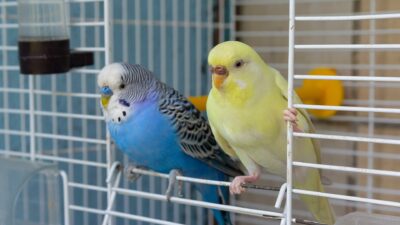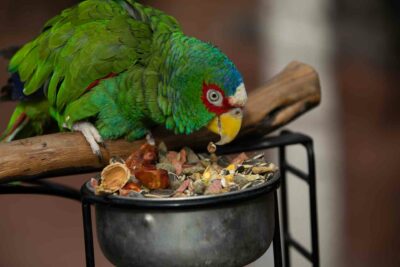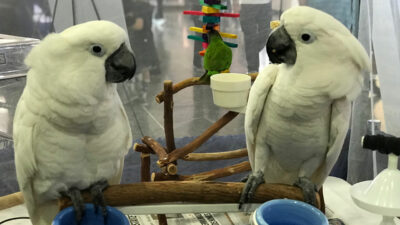Pet Bird Behavior
Just like people, different birds can have their own behavioral tendencies and personalities, which may vary based on the type of bird, their age, and several other factors. If you have a pet bird or you’re thinking of adding one to your family, understanding the factors that can shape their behavior can help you develop a stronger bond with your feathered friend.
In the following video, avian experts Dr. Kemba Marshall, DVM, DABVP (Avian) and Barry Wisebram discuss why it’s important to consider the behavioral traits of different types of birds when choosing which one is best for your family, as well as how behaviors such as talking and affection levels tend to vary among birds. Check out the video, or read on for some key insights from Barry and Dr. Marshall!
Which Birds Talk the Most?
As Barry—who has a background in the pet bird retail industry—notes, many people want a bird that can talk. While highly intelligent African Grey parrots and Amazon parrots are known for their capacities to amass a large vocabulary and speak clearly, other birds may also have impressive vocal abilities. For instance, the world record for the most extensive vocabulary of any bird actually goes to a parakeet named Puck, who was able to articulate over 1,700 words! Parakeets, however, generally do not speak as clearly as Amazons or African Greys. Other talkative types include cockatoos and macaws.
If you have a bird that can talk, it’s important to keep in mind that birds are always listening! Therefore, be careful what you say around your pet, as they could add it to their vocabulary and repeat it at any time. Additionally, as Dr. Marshall explains in the video, birds develop their vocabulary over the course of their lives—so if your pet says something that you did not teach, they may have learned it from a previous owner or from someone who has visited your home.
Which Birds are Affectionate and Which are More Independent?
When bringing a new bird into your home, one of the most important factors to consider is how much hands-on time you are able and willing to spend with them. The good news is that regardless of your preferences, there are birds that are more independent, and others that crave more affection and human interaction. As Barry explains, this is a spectrum based not only on bird type, but also age. For instance, very young birds tend to be more needy—but just like human teenagers, they may pull away from you during adolescence and even become aggressive at times due to their raging hormones. After this stage passes, they may become more affectionate again, but not quite as dependent as when they were babies. As far as bird type, cockatoos are some of the most affectionate, and may even be clingy at times—particularly if they have been hand-fed.
Regardless of the type of bird you choose, Barry emphasizes that one of the keys to ensuring a long-lasting, healthy relationship is to be consistent with the amount of attention you offer. If you suddenly start interacting with your bird less, they will likely feel confused. Therefore, when you have a new pet bird, try to limit your interaction to whatever amount you think you’ll be able to consistently provide going forward.
Want more guidance in selecting the best types of birds for your lifestyle? Be sure to take our pet bird matchmaker quiz!





